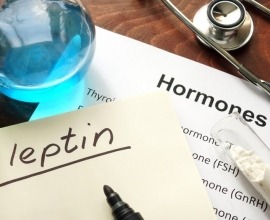Pregnancy after Gastric Surgery
As a woman do you find yourself struggling with weight gain, but no matter how many diets or fitness programs you try, you just can’t seem to fight off the pounds? Are you feeling frustrated, depressed and just want to move on with your life? Maybe you’re even thinking about starting a family, but the countless stories of the dangerous effects obesity has on pregnancy can be really off-putting and scary! If these are some of your thoughts don’t worry, you’re not alone.

In fact, many women in Europe are facing the same frustrations, as obesity figures are predicted to rise by 2030, according to WHO. We already know that obesity is bad on general health, but what effects does it have on pregnancy? Honestly, it’s not great! Research carried out on two groups of women, one being obese and the other of accepted BMI, showed that obesity in pregnancy resulted in a greater chance of developing gestational diabetes and preeclampsia. Basically, that means delivering an unhealthy and large baby or a delivery resulting in maternal or infant death. Obviously this is something you want to avoid!
Don’t despair there is good news! Weight loss procedures such as gastric balloon or SPATZ balloon offer an alternative to those that have already tried and tested other approaches but have until now been unsuccessful. In fact, research suggests that you’re better off giving birth after obesity treatment than delivering a pregnancy complicated by it. Not only that, but the surgery even benefits your baby, who is less likely to face obesity issues and cardiovascular risks.
When is it safe to get pregnant after surgery?
Don’t expect to be popping out little ones any time soon! The general consensus is a waiting period of 6 months to 2 years to allow your weight to stabilise. In this period your body experiences the most weight loss after surgery and fluctuating nutritional levels. So keep this in mind before you throw away those contraceptive pills!
Will my baby get the vitamins and nutrients it needs?
The waiting period ensures that your body has enough time to produce sufficient iron, folate, calcium and Vitamin B12 levels before pregnancy. Be sure to regularly consult with your bariatric surgeon and nutritionist or obstetrician to maintain ideal weight and nutritional levels.
Pregnancy after weight loss procedures is generally considered safe, as long as you manage your lifestyle choices and regularly check up with your health care providers!

On your consultation visit during your medical travel to Prague, be sure to discuss with your surgeon your desire to become pregnant after surgery to ensure you get the information and care that you need.
Sources:
http://www.bariatric-surgery-source.com/pregnancy-after-weight-loss-surgery.html














